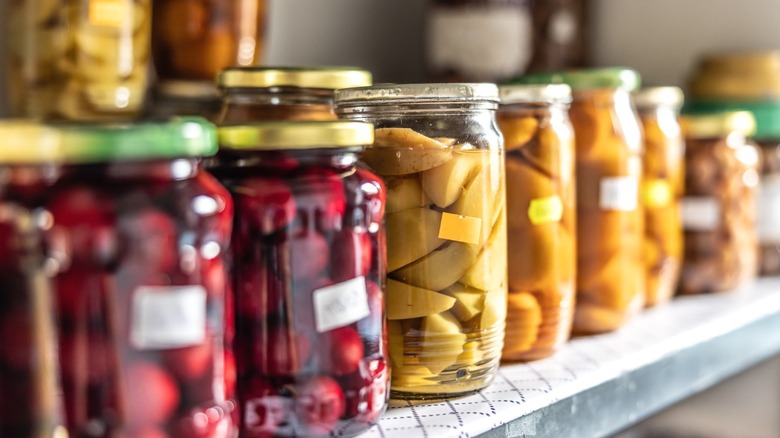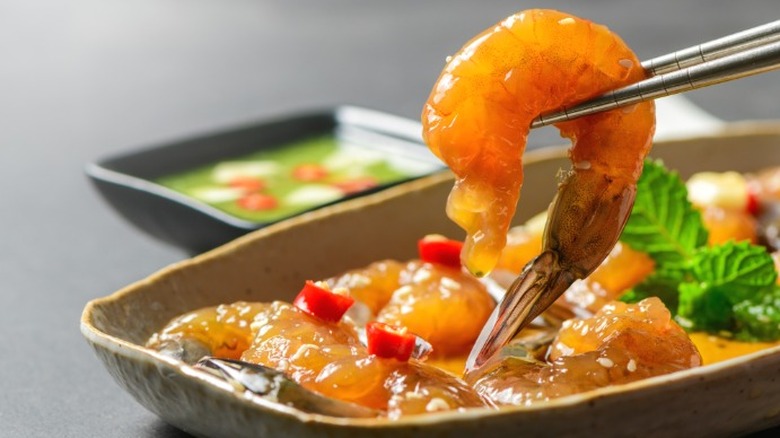The Seafood You Need To Start Pickling For A Succulent Kick Of Tangy Flavor
We understand you might be a bit hesitant about pickling seafood. Pickling, after all, entails sticking something in brine and keeping it there until it becomes ... well, more flavorful, but also a good deal more pungent. When you're dealing with ingredients which already taste rather strong, like most seafood, you would be forgiven for wondering what pickling might do to its taste. But pickling can greatly improve the flavor and texture of certain seafood dishes — you may have heard of pickled herring, but have you heard of pickled shrimp? We talked to Jack Irving, chef de cuisine at the restaurant Octavia in San Francisco, and he told us everything we need to know about pickling seafood.
"Pickling shrimp enhances both the flavor and texture," says Irving. "Texturally, pickling the shrimp creates a snappy, juicy bite that makes them especially satisfying to consume." We've all had underwhelming shrimp cocktail (which is too overpriced to order at a restaurant anyway), where the shrimp is mushy and unsatisfying — well, this fixes that problem. And the taste gets a major boost, too: "The acidity from the brine delivers a bright, tangy balance to the natural sweetness of the shrimp," Irving tells us. It also helps when you have plenty of aromatics, which suffuse the shrimp with just enough of their flavor. "Aromatics like celery, onion, and capers infuse the meat with a savory depth," explains Irving. All are excellent choices to start with, but there's a lot of room to experiment.
Some best practices for pickling shrimp
So what are some tips and tricks for pickling shrimp? Jack Irving, once again, has us covered. "While some people use water, I like to start by making a basic court bouillon, which is a flavorful poaching liquid," he says. While the recipe may vary depending on your taste, the general idea is to prepare a quick stock made from mirepoix (the three-ingredient combo of carrots, onion, and celery that improves soup) as well as a couple of other aromatics, and then strain it and use it to poach your shrimp before the pickling process.
As for the shrimp, Irving suggests that you keep your crustaceans on the smaller side. "Smaller shrimp are great for pickling," he says. "In San Francisco, we have bay shrimp that are small but full of flavor, [and] they take on the marinade better." (In any case, just make sure they're not the recently recalled radioactive shrimp.) And once the shrimp is pickled, there are all sorts of ways you can use it: It's a terrific appetizer on crackers or crostini, or eaten just on its own. As for Irving? "To really ramp up the flavor, it is delicious to lightly grill pickled shrimp and serve them on a piece of garlic buttered toast." It sounds like a brilliant flavor combination: salty, sweet, roasty, buttery, and utterly satisfying.

